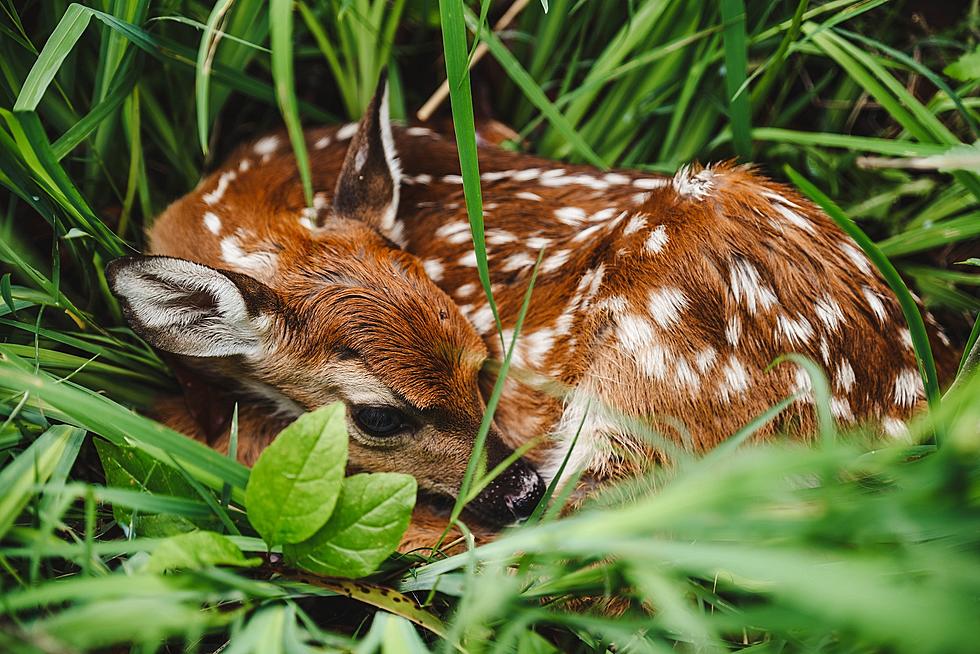
Your Fruit Scraps Could Make a Nice Treat for Michigan Deer and Other Wildlife
We all know that winter is coming, right? I mean, while many may want to live in denial and not want to be reminded of it, we know what happens right?
Of course, it can create inconveniences for us humans, but for a lot of Michigan wildlife, things get a bit harder for them, too.
While some animals hibernate, or have already stocked up on food for the winter (i.e. squirrels), others have to mill about in search of food even when their food sources get more and more scarce.

Specifically, How to Help Michigan Deer
My boyfriend and I get a lot of wildlife in our backyard. Mostly, though, we see a lot of deer. While we are not hunters, we love seeing them and I often think about what they are able to eat in the winter.
One thing I've noticed lately as I have started a new, healthy diet, is that we have a lot of food scraps when it comes to less-than-favorable fruit, strawberry stems, trimmings, etc. I feel guilty throwing them away (food waste in this country is real but we can discuss that another time).
So, I hopped on Google and looked up what kinds of fruits deer can have in general.
What Fruits Can Deer Have?
Of course, animals have different digestive systems than us and what they eat not only affects them but can impact our ecosystems.
"Deer enjoy a wide variety of fruits and vegetables such as apples, grapes, small plums, cherries, pears, pumpkin, carrots, snap peas, tomatoes, squash, almonds, watermelon, honey locust, watermelon, and persimmons," says Deer Friendly in their article on Feeding Deer.
I also looked into if deer could have blueberries and strawberries as that is what I seem to have the most of and, anyone with a garden probably already knows this one, but they can!
They often snack from blueberry bushes and, of course, can steal them from your garden.
How Do You Go About Feeding Them?
Look, I get it, it's a super cool thing to be able to hand-feed deer. However, if you are just sitting in your yard waiting for some Michigan Whitetail Deer to show up, you might be waiting a while.
Among many other recommendations, one that sticks out here from Deer Friendly is to make sure you don't just dump it all into one big pile. Make sure to spread out what you are leaving for the deer to prevent the transmission of chronic wasting disease as well as give ample opportunity for smaller deer to get in on the deliciousness too.
CLICK HERE for more.
When it comes to discarding your Halloween Jack-O-Lanterns and leaving them out for animals to feed on, I also read a social media post recently that said to make sure you chop it up and spread it out. One, so it's easier for more animals to feed on it and two, so none of them get stuck inside or get their heads stuck.
A Note From the Michigan DNR
Now, feeding the deer is legal, however, you can not be doing it to bait deer for hunting purposed. That, friends, is illegal in both Michigan's upper and lower peninsulas.
Leaving out some leftover fruit as treats for the deer is not the same as "supplemental winter feeding" which the DNR says is only permitted in certain counties and is not meant to be anything "official."
"Naturally occurring foods, standing agricultural crops, or food placed as a result of using normal agricultural practices are not considered to be bait or feed," says the Michigan DNR.
Now, do not come for me here, I am simply putting this out there to let you know you will not kill any deer by leaving out some leftover fruit scraps for them from time to time.
CLICK HERE for more information if you are actually interested in more "official" ways to feed deer in Michigan in terms of legality and such.
AGAIN, this is just a helpful tip that could help deer get an extra little treat when it comes time for their food supplies to be a bit more scarce. Do with this information what you will but don't say we didn't warn you if you get caught doing something illegal.
LOOK: Here are the pets banned in each state
More From Mix 95.7









